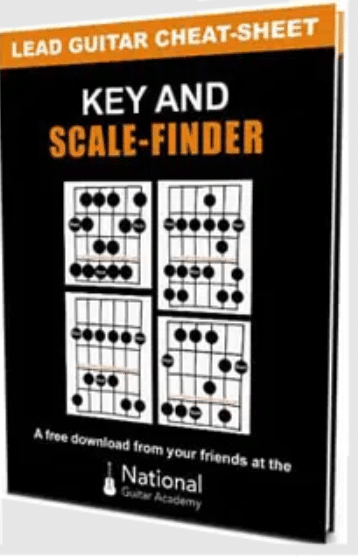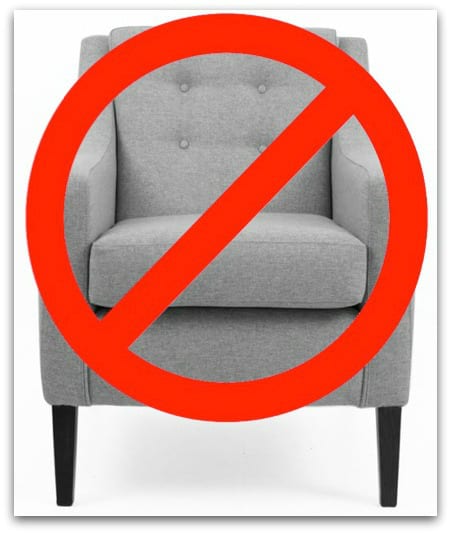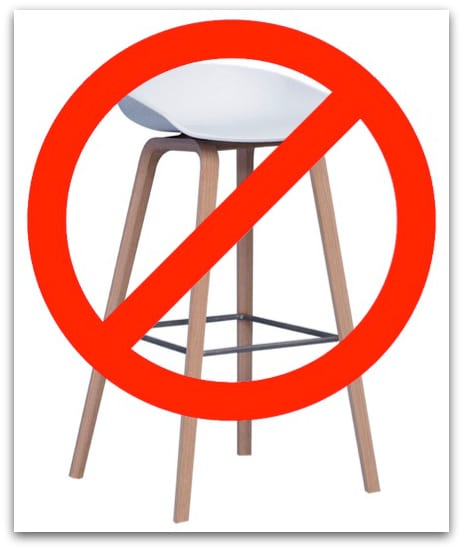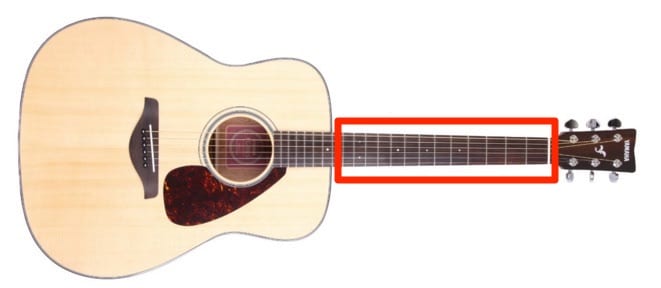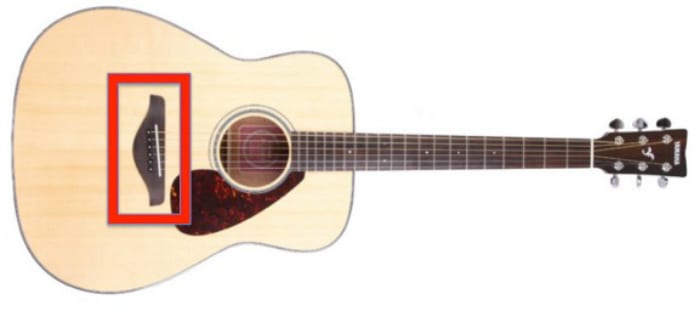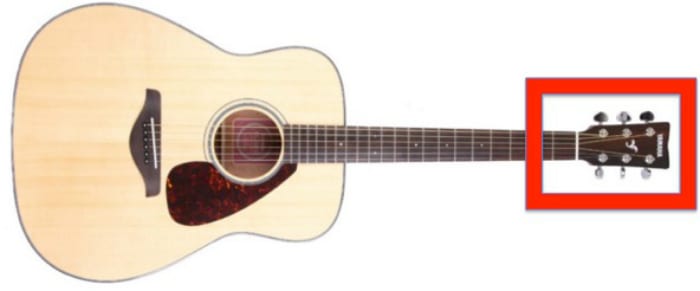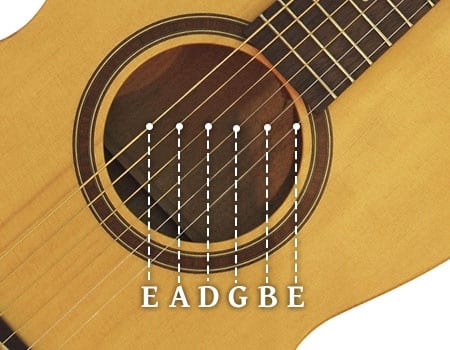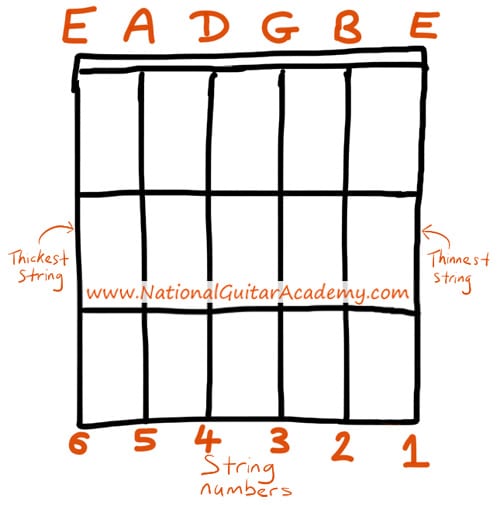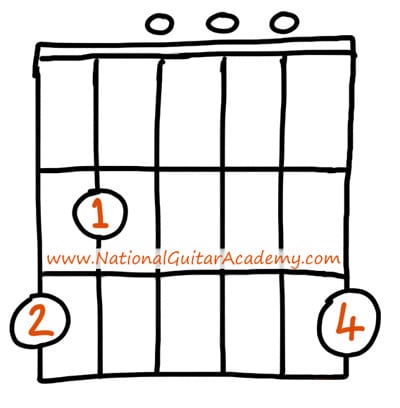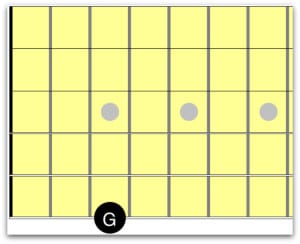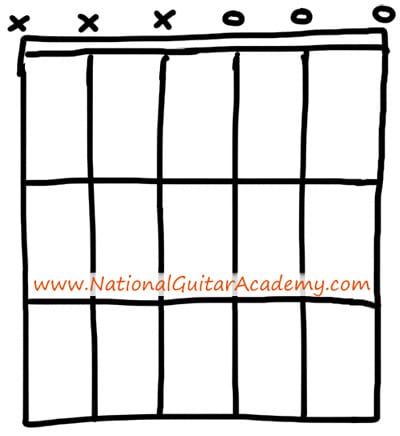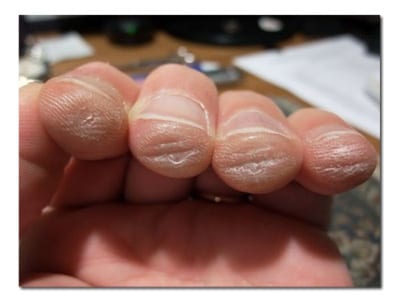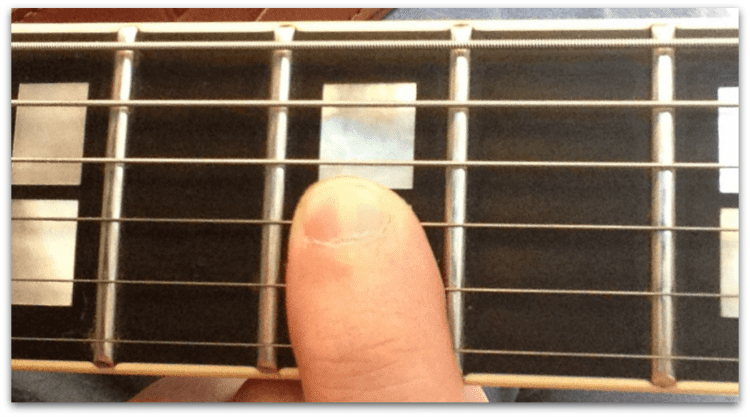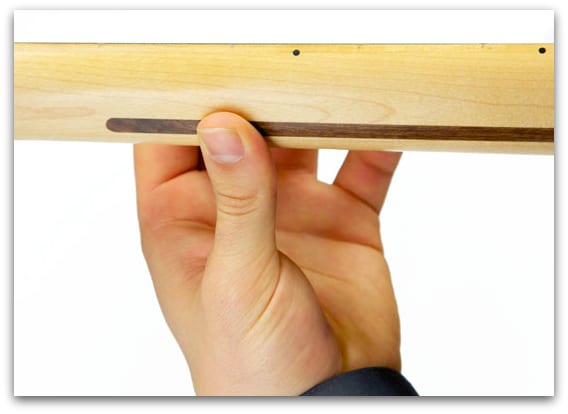Want to learn how to play acoustic guitar? You’re in the right place. This is one of our most popular guitar lessons, so let’s jump straight in!
In this free guitar guide, you will learn:
- Posture: The best way to hold the guitar
- 4 easy beginner guitar chords that sound great
- Anatomy: The essential parts of your guitar that you need to know
- How to strum a guitar (AKA ‘how to sound musical’)
- Melody & harmony: Understanding notes vs chords
- The correct way to hold a guitar pick
- 3 easy beginner songs you can play right now
I hope that sounds useful to you? By the end of this lesson, you will have an excellent understanding of how to play guitar for dummies. Let’s do it! 🙂
Over 100,000 guitar-learners get our world-class guitar tips & tutorials sent straight to their inbox:
Click here to join them
Get our best guitar tips & videos
You’ll learn to play acoustic guitar faster if you put great ‘fundamentals’ in place. And the most important thing of all is posture.
Posture (AKA ‘how you hold the guitar’) isn’t the sexiest subject globally, but it is the most important. Nothing will influence your chances of successfully learning guitar more than your posture.
If there are errors in your posture, you will never learn how to play the acoustic guitar as well as you’d like.
How to have perfect guitar posture
Ok, this is super important: The Thing You Sit On is vital.
1) Don’t slump down into a low sofa.
This restricts your movement and makes playing the guitar very difficult. (Especially if you’re using a large-bodied dreadnought or jumbo acoustic.)
You shouldn’t have to reach OVER the guitar to play it.
2) Don’t sit in a chair with arms.
Again, this restricts your movement and encourages you to keep your left elbow tucked into your torso. This is terrible for guitar playing!
If you want to learn to play the acoustic guitar correctly, your left arm must be completely free of obstructions.
3) Don’t perch on a high stool.
Low stools are perfect for guitar playing, but high stools are forbidden for guitar players! If you’ve tried playing at the breakfast counter, you will probably have experienced this already.
Playing on a tall stool tends to make your thighs slope downwards, and this means the guitar slips away from you while playing.
If you want to learn how to play acoustic guitar, it’s a prerequisite that the instrument is secure.
4) So what’s the best ‘thing’ to sit on?
Sit on anything you want, provided these two things are in place:
- Your knees should be at a 90-degree angle or angled slightly towards you.
- Both arms should be totally free from obstruction.
With these two things in place, you can learn how to play acoustic guitar quicker and with less frustration.
Learn 12 EASY beginner chords with our popular guide
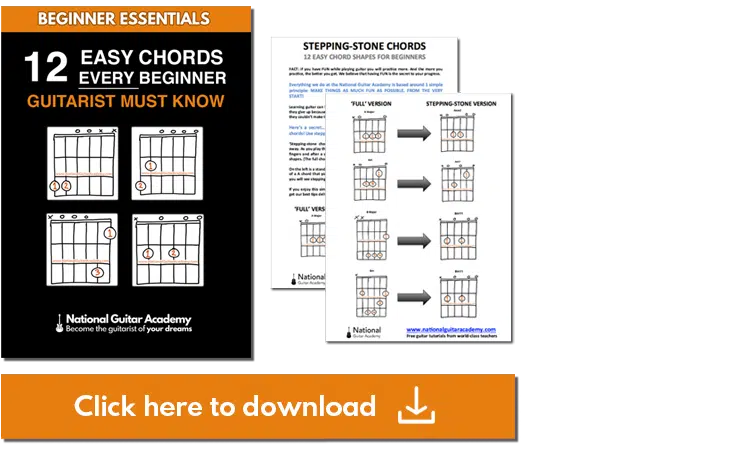
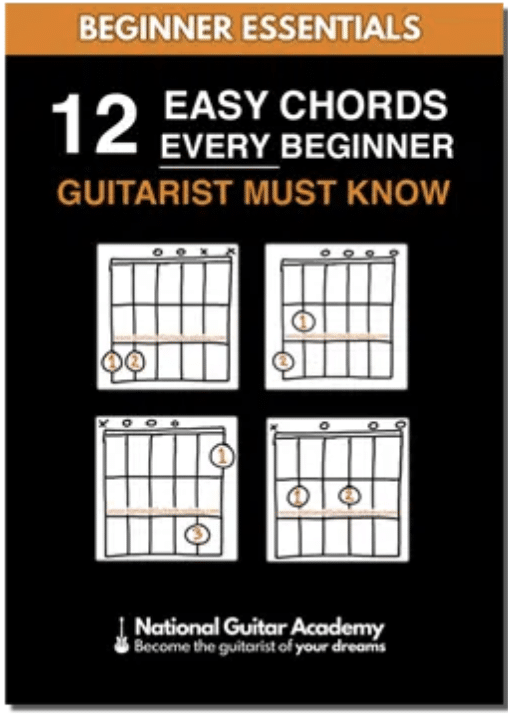
Where should we send it?
✅ Stop struggling. Start making music.
✅ Learn beginner-friendly versions of every chord.
This is our most popular guide and it will improve your chord ability quickly! 😎
Get your own personalised guitar-learning plan 🎸
Get a custom guitar-learning plan here: Click here for GuitarMetrics™
World-Class Guitar Courses 🌎
Learn from the world's best guitar educators: Click here for our guitar courses
How to Play Acoustic Guitar – Important Guitar Anatomy
You don’t need to know much about your guitar’s anatomy, but you do need to know a little. Here are the parts of the guitar that are ‘essential knowledge’:
The ‘Fretboard’
This is where you press your fingers to play different chords or notes. Learning how to play acoustic guitar is simpler than electric or jazz guitar because we don’t need to worry about amplification. We can focus purely on your right-hand and left-hand techniques.
The ‘Bridge’
This is where the strings are held in place. The strings are usually fixed into the bridge using small pegs on an acoustic guitar.
The ‘Machine Heads’
You will see the guitar’s ‘headstock’ inside the red box above. You’ll also see some keys that you can turn. We call these ‘machine heads,’ and they raise and lower the pitch of each string. Adjusting these is how you keep your guitar in tune.
If you want to continue learning guitar, you must know how to keep the instrument in tune, so the machine heads are a vital piece of your guitar’s anatomy.
Learn more in this article: How To Tune A Guitar Correctly: A Guide For Beginners
What are the notes of the guitar strings?
You’ll find it almost impossible to learn how to play acoustic guitar if you don’t know the notes of the strings. In standard tuning, the strings have a name and a number.
- The thickest string is called the 6th string. In standard guitar tuning, this is tuned to E. We often call this the ‘low E string.’ This guitar note is the deepest/lowest you can play.
- The 5th string is tuned to A, so it’s usually called the A string.
- The 4th string is tuned to D, so it’s usually referred to as the D string.
- The 3rd string is tuned to G, so it’s usually referred to as the G string.
- The 2nd string is tuned to B, so it’s usually referred to as the B string.
- The 1st string is tuned to E. This string is the thinnest of all. We often refer to this as the ‘high E string.’
How to remember the string names/notes
The easiest way to remember the string names in your practice routine is by using a mnemonic.
Try this one:
- Elephants
- And
- Dynamite
- Grow
- Big
- Ears
This next one is my favourite:
- Eddie
- Ate
- Dynaminte
- Good
- Bye
- Eddie
What’s the difference between chords and notes?
- A note is a solitary pitch. It’s what you hear when you pluck one string.
- A chord is a group of notes played together at the same time.
Think of it like this: Notes are like letters. Chords are like words.
For example, here is a G Chord:
Do you understand this chord box image? If not, here’s an article that will help you: How To Read Guitar Chord Boxes
And here is a G Note:
There are a lot of guitar notes on the fretboard, and it can be overwhelming for a beginner. All beginners should focus solely on CHORDS. Don’t try and understand all the notes of the fretboard as a beginner – that’s a frustrating and unhelpful path to take.
When you’re ready to learn more about the note of the fretboard, this article will help you: Guitar Notes Explained – A Guide For Beginners.
What are ‘chords’?
If you want to learn how to play acoustic guitar, you must understand basic chords. A chord is a group of notes played together at the same time.
For example, you play a chord if you strum the G, B and E strings. (Because you’re strumming a ‘group’ of notes simultaneously.)
‘Should I focus on notes or chords?’
They’re both awesome. But guitar chords are more suitable for beginners. If you want to learn how to play acoustic guitar easily, start with chords.
How to fret chords correctly
Make sure you use the very TIPS of your fingers. You don’t want to use the fleshy part, where your fingerprints are.
Using the tips of your fingers allows the maximum space in between each string. Notes can ring clearly without being muffled or deadened by unwanted fingers.
Try playing some simple chords with your fingertips vs your fingerprints. You will quickly see which one sounds best!
- Each note needs to be clear and clean.
- Make sure to place your finger in the middle of the frets, not ON the frets. Your finger needs to go in the gap. This helps stop deadened notes and is a crucial part of learning how to play songs on acoustic guitar cleanly and articulately.
- For the vast majority of chords, your thumb should be in the middle of the neck and pointing to the ceiling.

